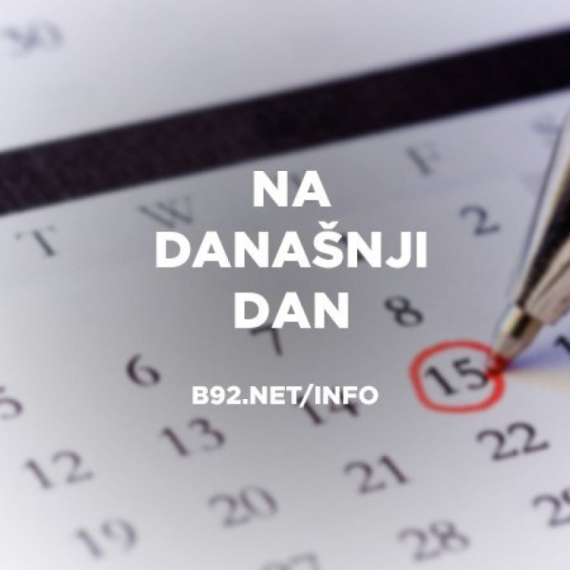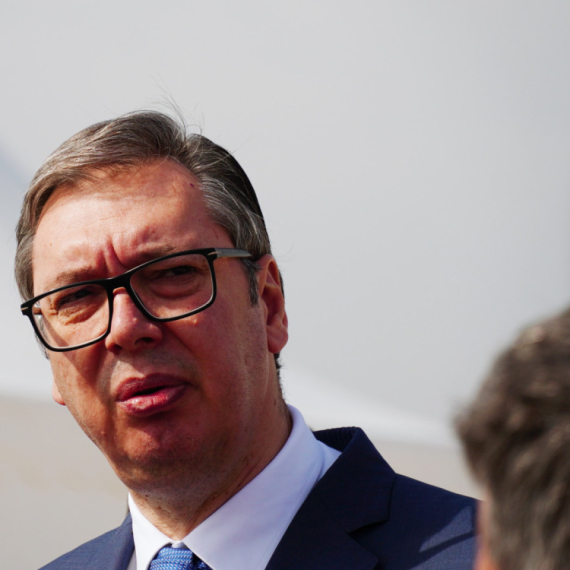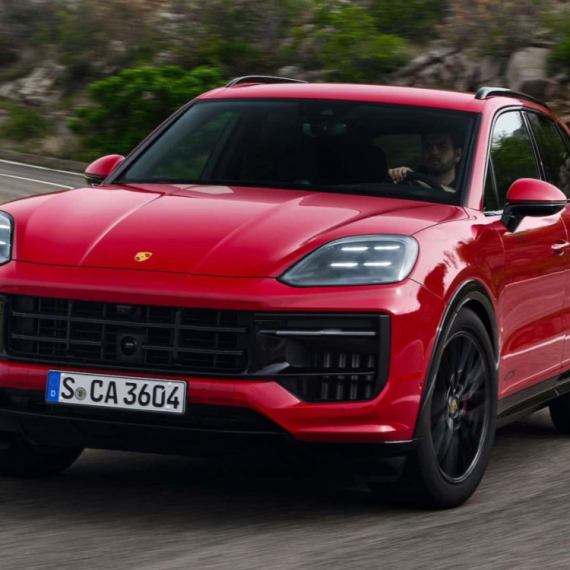Professor advises "hitting rock bottom" as "way out"
Serbia "unfortunately still has not hit rock bottom", says Boris Begović, adding that otherwise "illusions would have vanished and reforms could finally start."
Tuesday, 09.04.2013.
13:31

BELGRADE Serbia "unfortunately still has not hit rock bottom", says Boris Begovic, adding that otherwise "illusions would have vanished and reforms could finally start." This Faculty of Law professor and director of the Center for Liberal-Democratic Studies told B92 that "had we hit rock bottom, the topics that dominate now would not exist, and neither would the politicians who advocate them - we would be ready for painful, but necessary changes." Professor advises "hitting rock bottom" as "way out" He accused the authorities in Serbia of "avoiding structural and institutional reforms for years," adding that such reforms were "the only way to do the necessary - improve the business environment." "Investors are being attracted here by subsidies, the ministry embodied in Mladjan Dinkic is using taxpayers' money to pay investors to come. Another concept, which the authorities have been running away from, is to improve the business environment. It is very poor, and it is necessary for Serbia to become an attractive investment destination," Begovic said. He then stressed that Serbia "already has something to offer" - but that these "trump cards" must be accompanied by many changes. All of this is necessary for economic growth, "because savings are practically non-existent in Serbia." "Serbia has a very flexible workforce, a workforce that learns quickly. We have a free trade agreement with the EU. Fiat would not have come here even if somebody paid them EUR 100,000 per (new) job, if there was no customs-free export to the EU. Capital has no color, money has no smell, everybody who finds the environment attractive will come here." However, Begovic believes that Serbia's rating "in the eyes of serious people" has been increasingly diminishing, and says this is because the country "has stopped taking itself seriously": "Of all the economic questions, the only one that is being answered is how to finance the budget deficit, which is constantly growing. Serious people see that and our rating is lower and lower. That's the key problem, as well as the fact that it is becoming increasingly clear that Serbia does not intend to shake off this apathy. Something like that is certainly not a recommendation." This behavior has led to Serbia - which was "behind the world even during the former Yugoslavia", to fall even further behind - "and only the right kind of foreign investment that would bring along transfer of technologies" could put this right, the professor believes. "This country is yet to transform itself into a market economy. If we wish to move forward, a radical reform of the cumbersome public sector is needed, as well as structural and institutional reforms. The media strategy is such that all the attention is directed toward the EU, the economy's reform is not seen as a necessity, but we are a very poor country, at the European bottom. The government here is not dealing with the issues of economic growth, which has been missing for years - that's the basic problem of Serbia," Begovic stated. As a well-known advocate of Serbia's integration into the European economic space before the country actually joins the EU, he chose to answer with a question of his own when asked "how can Serbia be a candidate in this condition": "And what is our interest and what is the recommendation for us to be a part of the EU, which is an even higher degree of integration, and this is all that's being talked about? A date (for the start of membership talks) will not bring us a significant change of the situation, the funds will be providing the same amount of money." Begovic sees the behavior of the country's political elite as "curious" - because a future membership in the EU "hands on a long stick". "We are giving concessions and a lot besides, and in return we are getting promises that we do not know are valid. The EU has left Serbia like one leaves a carriage on a dead-end railroad. Since 2008 onward, the state's position has been passive and defensive. It either fulfils what it has been told, or does not, but it just can't come up with its own suggestions on how to define the relationship with the EU." Serbia has the possibility to offer various forms of cooperation, while when it comes to Kosovo and Metohija, "not everything is over, because Serbia still has a say", Begovic noted, and concluded: "The issue of Kosovo's independence is most important to the leading EU countries, but we still have a say in that. As long as we do not recognize it, that means there is a country that does not recognize it. Seriously politicians will know that this is a strategic argument." Boris Begovic (B92) B92
Professor advises "hitting rock bottom" as "way out"
He accused the authorities in Serbia of "avoiding structural and institutional reforms for years," adding that such reforms were "the only way to do the necessary - improve the business environment.""Investors are being attracted here by subsidies, the ministry embodied in Mlađan Dinkić is using taxpayers' money to pay investors to come. Another concept, which the authorities have been running away from, is to improve the business environment. It is very poor, and it is necessary for Serbia to become an attractive investment destination," Begović said.
He then stressed that Serbia "already has something to offer" - but that these "trump cards" must be accompanied by many changes. All of this is necessary for economic growth, "because savings are practically non-existent in Serbia."
"Serbia has a very flexible workforce, a workforce that learns quickly. We have a free trade agreement with the EU. Fiat would not have come here even if somebody paid them EUR 100,000 per (new) job, if there was no customs-free export to the EU. Capital has no color, money has no smell, everybody who finds the environment attractive will come here."
However, Begović believes that Serbia's rating "in the eyes of serious people" has been increasingly diminishing, and says this is because the country "has stopped taking itself seriously":
"Of all the economic questions, the only one that is being answered is how to finance the budget deficit, which is constantly growing. Serious people see that and our rating is lower and lower. That's the key problem, as well as the fact that it is becoming increasingly clear that Serbia does not intend to shake off this apathy. Something like that is certainly not a recommendation."
This behavior has led to Serbia - which was "behind the world even during the former Yugoslavia", to fall even further behind - "and only the right kind of foreign investment that would bring along transfer of technologies" could put this right, the professor believes.
"This country is yet to transform itself into a market economy. If we wish to move forward, a radical reform of the cumbersome public sector is needed, as well as structural and institutional reforms. The media strategy is such that all the attention is directed toward the EU, the economy's reform is not seen as a necessity, but we are a very poor country, at the European bottom. The government here is not dealing with the issues of economic growth, which has been missing for years - that's the basic problem of Serbia," Begović stated.
As a well-known advocate of Serbia's integration into the European economic space before the country actually joins the EU, he chose to answer with a question of his own when asked "how can Serbia be a candidate in this condition":
"And what is our interest and what is the recommendation for us to be a part of the EU, which is an even higher degree of integration, and this is all that's being talked about? A date (for the start of membership talks) will not bring us a significant change of the situation, the funds will be providing the same amount of money."
Begović sees the behavior of the country's political elite as "curious" - because a future membership in the EU "hands on a long stick".
"We are giving concessions and a lot besides, and in return we are getting promises that we do not know are valid. The EU has left Serbia like one leaves a carriage on a dead-end railroad. Since 2008 onward, the state's position has been passive and defensive. It either fulfils what it has been told, or does not, but it just can't come up with its own suggestions on how to define the relationship with the EU."
Serbia has the possibility to offer various forms of cooperation, while when it comes to Kosovo and Metohija, "not everything is over, because Serbia still has a say", Begović noted, and concluded:
"The issue of Kosovo's independence is most important to the leading EU countries, but we still have a say in that. As long as we do not recognize it, that means there is a country that does not recognize it. Seriously politicians will know that this is a strategic argument."



















































Komentari 17
Pogledaj komentare